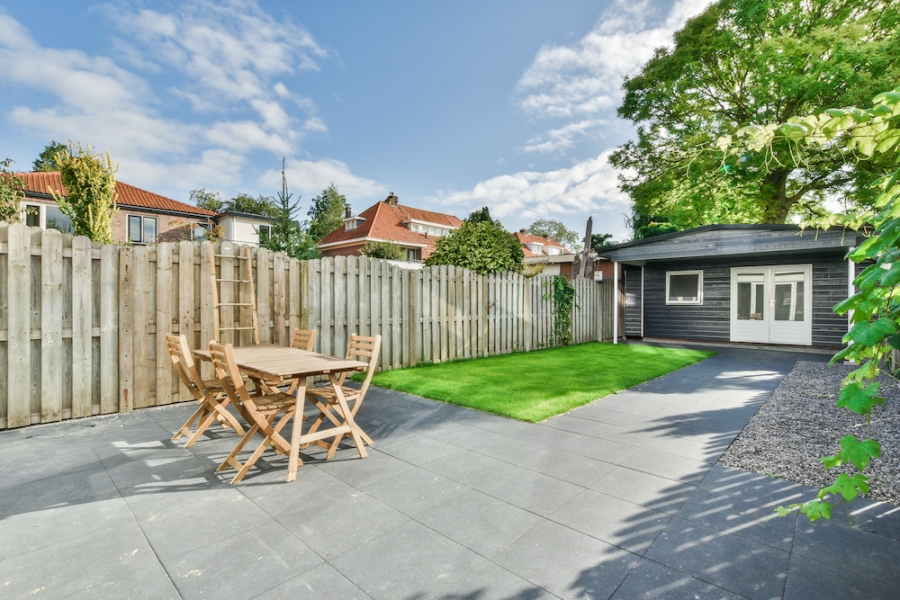What to Know About Accessory Dwelling Units
Written by Ashley Sutphin Posted On Monday, 17 July 2023 00:00
With the stubbornly high prices of homes and the limited inventory, people are getting more creative about their living spaces. With that can come the use of accessory dwelling units or ADUs. These additions create secondary housing on a single-family lot. An ADU can be a way to create multi-generational housing or a second income stream.
Accessory dwelling units are also great for guest suites, in-law apartments, and home offices, but there are things to be aware of before you commit to adding one to your property.
What Is an ADU?
The term accessory dwelling unit is regulatory and legal in that it describes a secondary house or apartment sharing the lot for a larger main home. These units can’t be bought or sold independently, but as mentioned, they can be a source of additional income.
ADUs usually have their own living and kitchen areas and a separate entrance from the rest of the home. They can be standalone or attached to a garage or another part of the primary house but generally use the house’s water and utility connections.
ADUs and Zoning Laws
Following World War II, there was a major housing boom in the U.S. In response, most residential parts of the country were zoned, setting limits on the size and separation required for single-family homes and also limits on population density. In more recent years, there have been growing changes in zoning that allow for ADUs.
The zoning laws for ADUs usually limit the style and size and also require the owner to live on the property.
If you’re thinking about building an ADU, you have to find out if it’s legal where you are. If you build an ADU and it’s against any laws or regulations to do so, it can cause future problems if you want to refinance at any point. If you build an ADU without proper authorization, you might also face code enforcement actions. If you’re a property owner, you should look at the zoning ordinances where you live, and it’s not a bad idea to consult with an attorney as well.
The Pros and Cons of an ADU
The pros of ADUs include that they can provide additional income if you rent them out, add value to your property, or give you more living space. The downsides of an ADU include that they cost money to build and then maintain on a monthly basis, they could take up space you might use for another purpose, and if it’s used as a rental, it will require you to act as a landlord.
While one of the benefits of an ADU is that it has the potential to add value to your property, it depends a lot on the market. Knowing whether an ADU will be a good investment can be tough until you sell your property.
There are five types of ADUs, which include:
- Detached new construction, also called backyard cottages or granny pods. These give a lot of privacy because they’re separated from your main house.
- An addition or attached ADU extends from your main residence.
- An above-garage ADU can be added to existing garages as part of a remodel, or you can add one to the plans for a new build.
- Garage conversion ADUs can change the garage’s entire functionality from storage to an ADU.
- Basement conversions are similar to garage conversions in that the basement becomes an extra living space and often has a private entrance.
You will almost always be required to get a permit for an ADU, with specifics depending on your state and relevant local laws. Because of the demand for affordable housing, a lot of states have eased up on zoning laws to promote using ADUs to create more affordable housing.
Depending on where you live, particular guidelines may determine the minimum lot size or how many ADUs you can put on one property. Some laws dictate the size, type, and design of an ADU, and you may face multiple sets of guidelines—for example, one set from your city and one from your HOA.
You can’t sell an ADU as a separate residence because the term accessory means it’s legally attached to your current single-family lot.
Your location will have its own development standards. For example, in some towns, there’s a limit on the square feet that an ADU can be. You should consult your local laws to determine what type of kitchen may be required.
Overall, ADUs are a way to deal with the housing affordability crisis. They can also be a way to have loved ones live with you so they don’t have to go to assisted living or nursing homes while retaining a sense of privacy. They are guided by plenty of regulations, and you need the proper permits, but it’s an interesting form of housing that’s becoming increasingly in demand.

